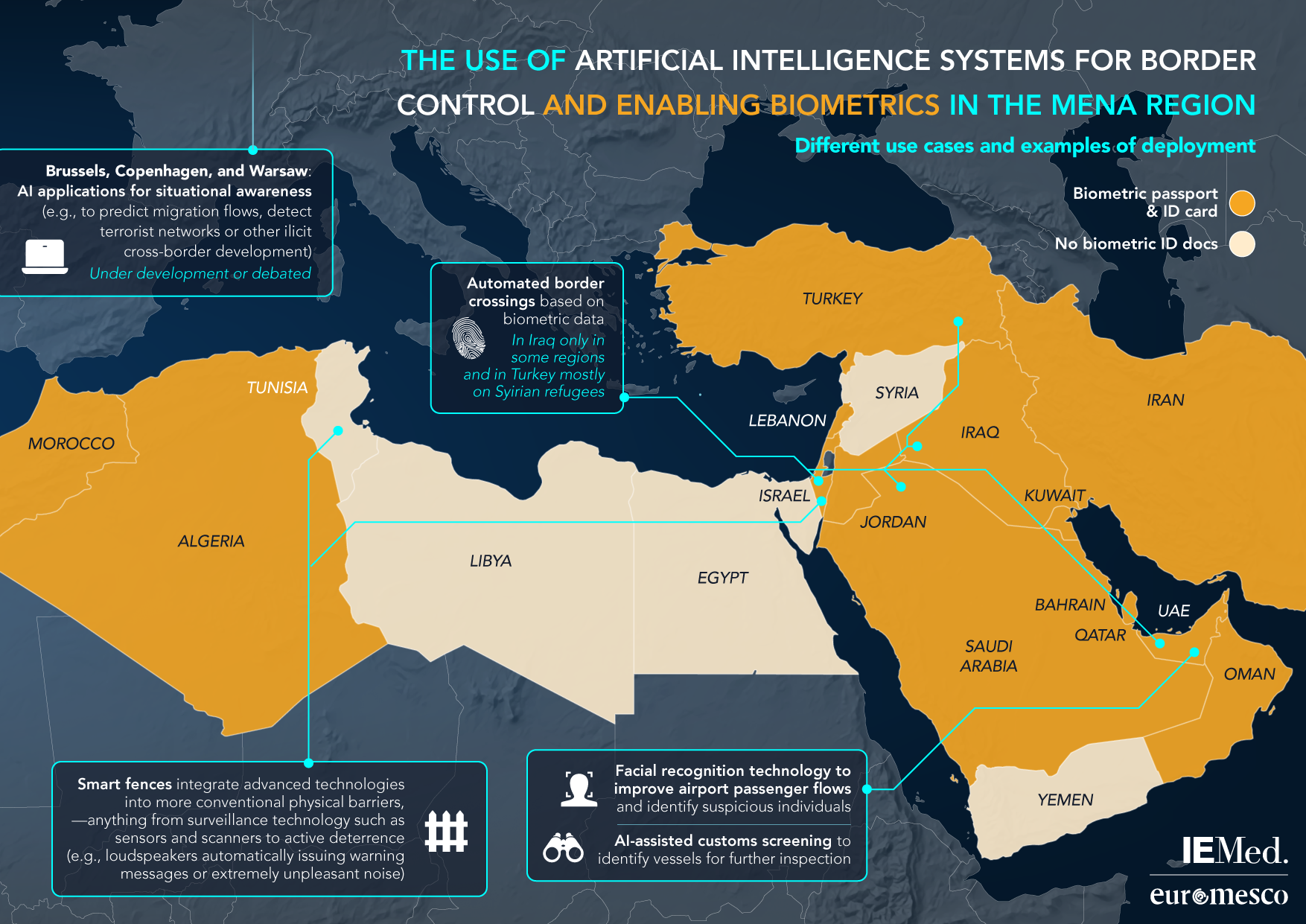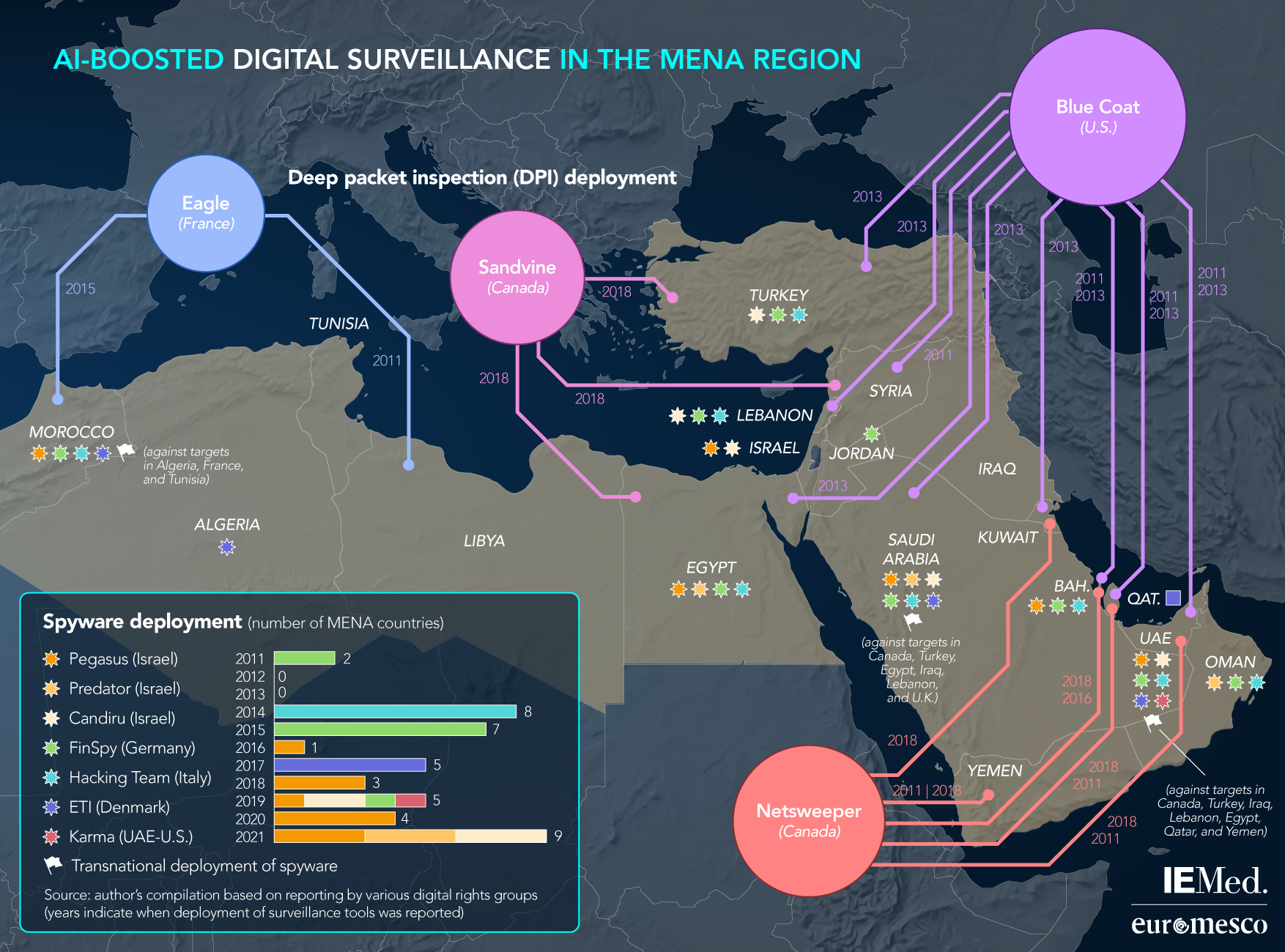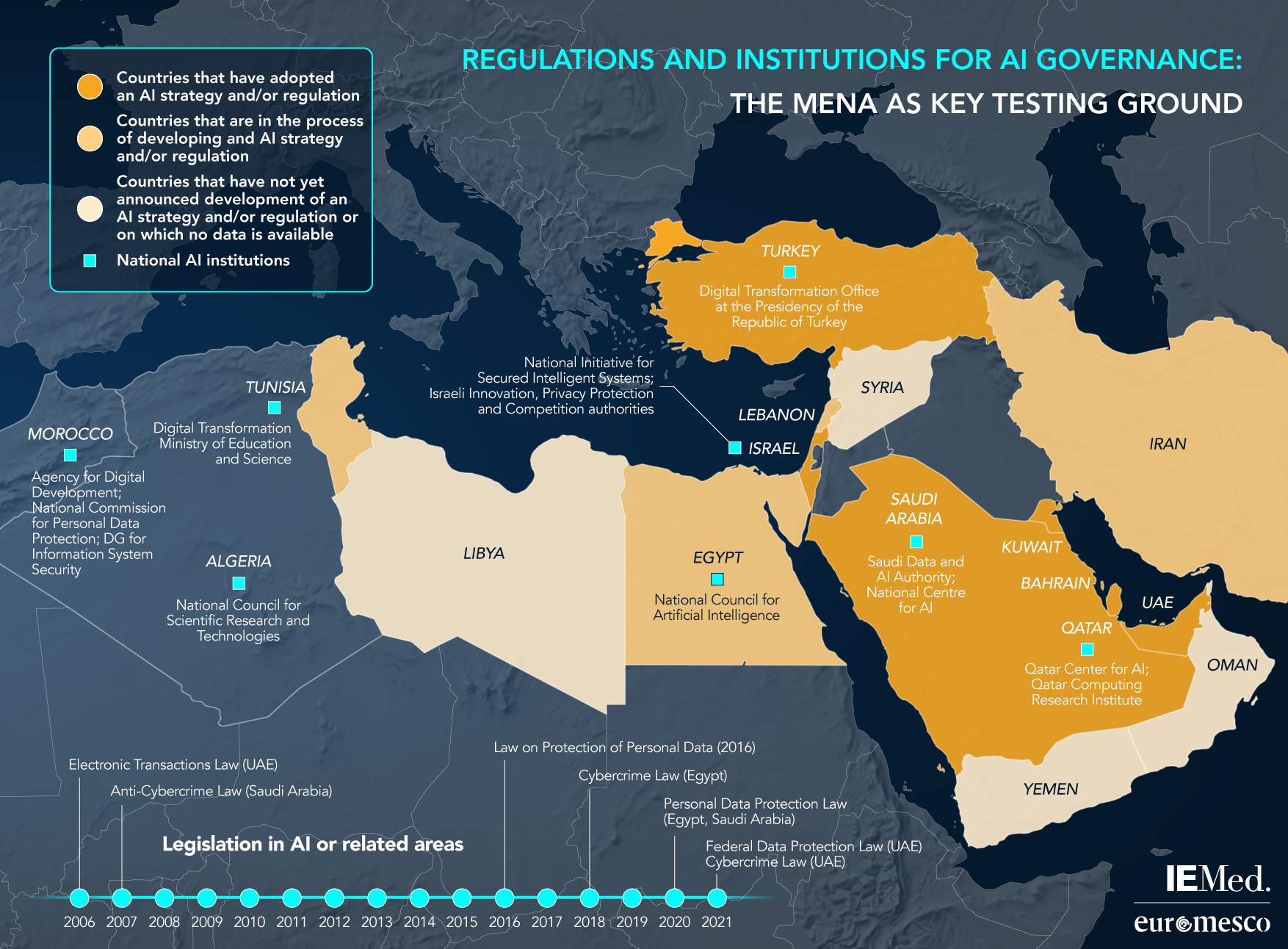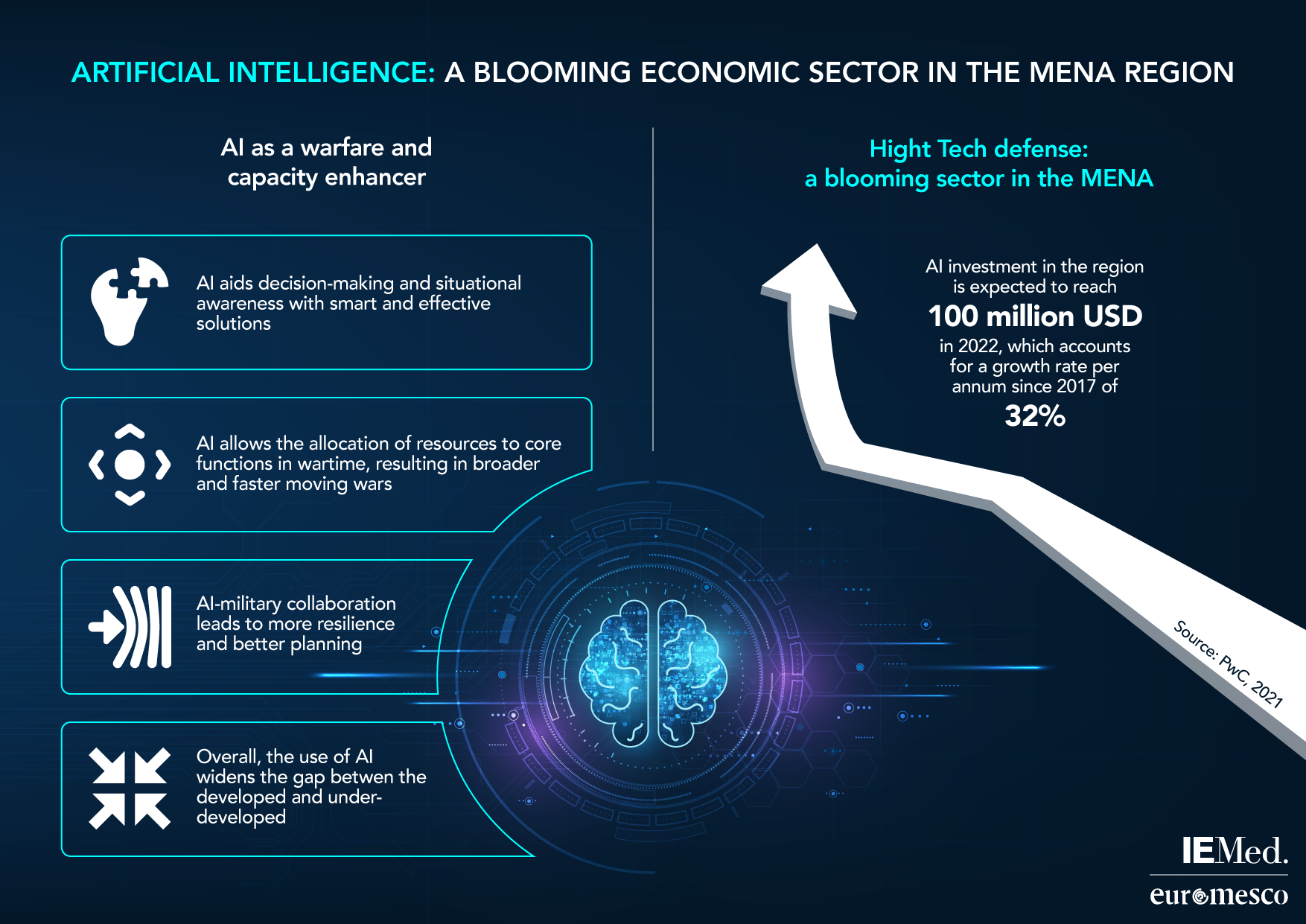




Abstract
The emergence of artificial intelligence (AI) enabled technologies has triggered debates on the potential risks and opportunities for the use of these technologies to enhance societies’ prosperity, security and well-being while ensuring the preservation of fundamental rights. The application of AI has special potential in the field of counterterrorism, border management and predictive policing. The Middle East and North Africa (MENA) region presents particular challenges in this equation. On the one hand, the region’s challenges could greatly benefit from a booster in security-related problem-solving efficiency. On the other hand, ethical and legal considerations gain particular wight in a region largely governed by authoritarian rules and with a weak rule of law.
Through four chapters, this Policy Study aims to examine these questions and dilemmas raised by AI in the MENA through a European policy lens paying particular attention to border management, surveillance, defence and regulation. To do so, the first chapter explores the ways in which AI systems are currently and potentially used in MENA borders and migration management. The second chapter examines how the uptake of AI-enabled technologies has boosted digital surveillance, including machine learning for clustering, speech recognition, natural language processing, image and video generation and autonomous decision-making. The third chapter analyses how the shifts in the future of warfare brought on by AI play out in the Middle East as some countries’ fast investment in emerging defence technologies has turned them into unexpected pioneers. Robotic warfare in particular will bring significant impacts for the future of war, creating a battlefield where trade-offs and large-scale destruction are normalised. The last chapter of the study focuses on AI regulation efforts in the MENA region and explores how global advances may impact the use and the regulation of AI in the EU’s Southern Neighbourhood. While an international consensus on ethical principles for AI is emerging and most countries rely on soft approach, a nascent trend points towards legislative reform and hard law regulation. The role the EU has to play in this context is explored through policy-oriented recommendations.







